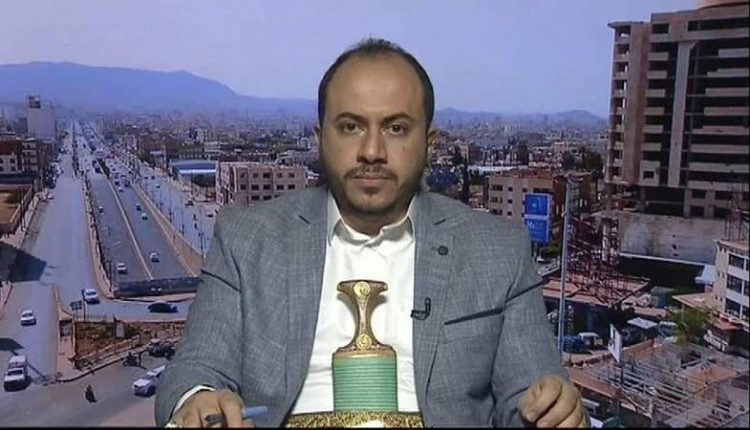Supply Suffocation Reveals Falsehood of Statements of UN Envoy Over Smooth Flow of Fuel Hodeidah Port
Yemen Petroleum Company’s official spokesman Issam Al-Mutawakel confirmed that the US-Saudi aggression did not allow any fuel ship, of the existing truce allocations, to enter the port of Hodeidah.
“The fuel ships that have previously arrived at the port of Hodeidah are among the entitlements to the first extension of the truce,” Al-Mutawakil told Al-Masirah on Sunday. “The supply suffocation today reveals the falsehood of the statements of the UN envoy and his allegation of the smooth flow of fuel to the port of Hodeidah.”
Al-Mutawakel demanded that the port of Hodeidah must be fully opened, stressing that the company will bear the responsibility for any supply crisis.
He stressed that detained ships must be released to lift the state of emergency ration.
On Saturday, the Al-Mutawakel confirmed that no fuel ships have entered since the last extension of the humanitarian and military UN-sponsored truce.
He stated in his Twitter account that the coalition is detaining nine fuel ships off the coast of Jizan, despite having searched and obtained entry permits from the United Nations.
Earlier, the Yemeni Petroleum Company had announced that it was forced to work with the emergency plan starting Sunday morning due to the coalition’s continued violation of the truce by detaining nine oil ships and the deliberate supply crisis.
On Friday, the YPC said in a statement that, “The total fines for delaying fuel ships seized by the US-Saudi aggression amounted to 11 million dollars during the truce period”. The company reiterated that the US-Saudi aggression continued to piracy on all fuel ships, without exception, and to seize them since the announcement of the temporary truce.
The company explained that the fuel ships are still being held by the US-Saudi aggression for varying periods, a total of 314 days since the announcement of the truce agreement, in addition to the delay in Djibouti for a total period of more than 152 days.
It stressed that during the truce period (April-September), only 33 fuel ships out of 54 ships reached Hodeidah ports, of which only four were released on August 2, at the end of the first extension period of the truce.
The statement stated that fuel shipments incurred delay fines during the truce period, amounting to 11 million dollars due to piracy, detention and delaying their entry to the ports of Hodeidah.
He pointed out that the number of currently detained fuel vessels has reached nine fuel vessels, all of which have UN entry permits.
The YPC confirmed that the complicity of the relevant UN formations with the US-Saudi aggression seriously contributes to the exacerbation of explicit violations of the truce agreement.
It pointed out that this complicity became an actual participation in the siege through the coordinates sent by the UNIVM to the ships authorized to go to the detention area and stay there, waiting for a permit to allow them to reach the ports of Hodeidah.
The YPC holds the US-Saudi aggression and the UN responsible for all the direct and indirect humanitarian and economic consequences and repercussions resulting from the continuation of the strict blockade on fuel ships.
A UN-brokered truce in Yemen first came into effect on 2 April, and for an initial two months. It was renewed for another two months in June. The deal stipulated halting offensive military operations, including cross-border attacks, and allowing fuel-laden ships to enter Yemen’s lifeline Hodeidah port and commercial flights in and out of the airport in the capital Sana’a “to predetermined destinations in the region.”
However, in light of UN silence, the Saudi-led aggression was still obstructing flights to the Sana’a International Airport in Yemen’s capital and detaining fuel ships that were headed to the country. The fires of the aggression side did not subside along the fronts, on the borders and inside, including shelling, reconnaissance, development and crawl.
When the period specified for the military and humanitarian truce was nearing its end, the US-Saudi aggression seemed to be in a hurry to adopt the option of extending it for the third time to freeze the battle in Yemen and its economic repercussions away from global energy markets.
The forces of aggression are pushing for an extension, not out of concern for peace, but rather out of fear that the escalation will add more complications to the international scene in addition to the crisis imposed by the Russian-Ukrainian war.

